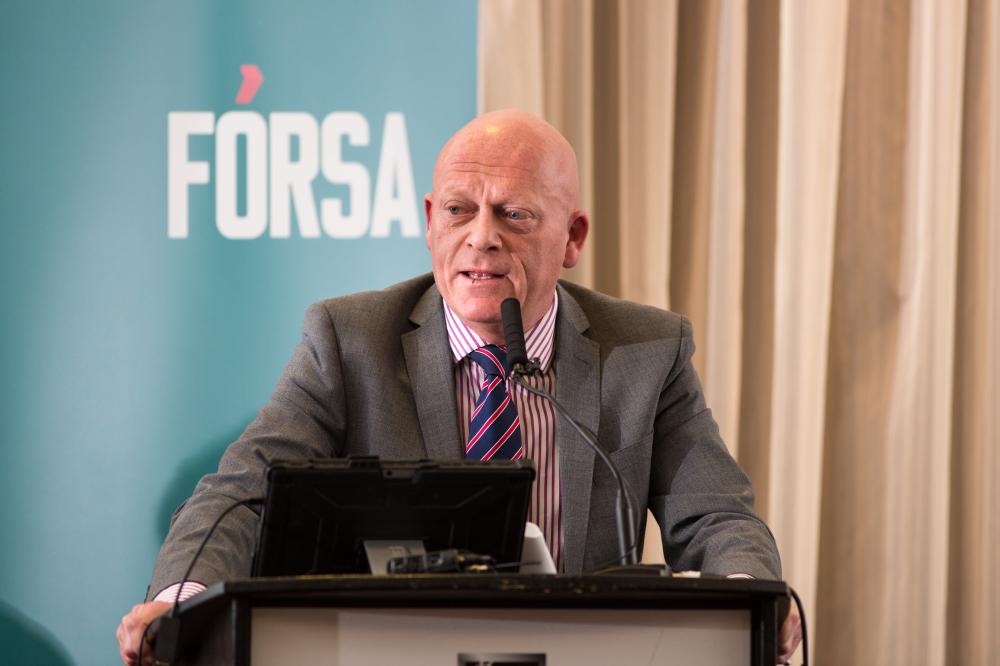Fórsa is seeking urgent HSE measures to address the growth in Covid-19 infections among health staff as the number rose to over 9,225 at the start of last month. Around 30% of these are staff in grades represented by Fórsa.
The union’s head of health, Éamonn Donnelly, has asked the ‘staff panel,’ which brings together the main unions in the sector, to increase pressure on the HSE to take action after the agency failed to respond to a detailed union complaint, which was sent over a month ago.
The unions believe the number of cases – which is among the highest in Europe – is largely down to a ‘derogation’ policy, which gives local management authority to require staff to return to work quickly after unprotected close contacts at work, including close contacts with known clusters.
The unions believe the number of cases – which is among the highest in Europe – is largely down to a ‘derogation’ policy, which gives local management authority to require staff to return to work quickly after unprotected close contacts at work, including close contacts with known clusters.
Unions say local managers are derogating significant numbers of staff to return to work because of pressures on the health service and health service staffing, and that this means health workers who are in close contact with the virus are frequently not subject to the same infection control measures as others.
They say the HSE has insufficient national governance on the practice, and little insight into its impact on healthcare workers’ or patients’ health.
In early October, the HSE admitted to unions that it holds no national records of derogations. As a result, there are no reliable statistics on the numbers granted, where they are in place, or links between derogations and the spread of the virus among staff and others.
Among other things, Fórsa and other unions have called for a testing policy that’s robust enough to counter the relatively lax safeguards applied under derogations, and better measurement of related infections among other staff and patients.
Among other things, Fórsa and other unions have called for a testing policy that’s robust enough to counter the relatively lax safeguards applied under derogations, and better measurement of related infections among other staff and patients.
Mr Donnelly said the HSE’s approach to the problem was “casual,” against a background of almost 10,000 infections, which had likely led to further spread among the close contacts of at least some of those affected.
“Overall the HSE has done an excellent job in response to the pandemic, and its staff have shown great courage and commitment. It’s understandable that an imperfect policy was put in place at the height of the early emergency, when we knew little about the virus and the health service was struggling to put urgent responses in place. But the approach now needs to be reviewed and amended as a matter of urgency.
It’s understandable that an imperfect policy was put in place at the height of the early emergency, when we knew little about the virus and the health service was struggling to put urgent responses in place. But the approach now needs to be reviewed and amended as a matter of urgency.
“At the very least, we need national oversight to monitor and record all derogations, ensure compliance with policy, and assess the impact of derogations. And we need a robust testing regime to minimise risks to derogated staff, their colleagues and patients,” he said.
In related news, the Irish Times this week reported on HSE documents that showed the number of health staff off work with Covid-related issues surged to almost five times its summer level in recent weeks. Almost 1,700 health workers were absent due to Covid-19 on 21st October when level five restrictions were introduced. This was up from just over 350 on 8th July.

